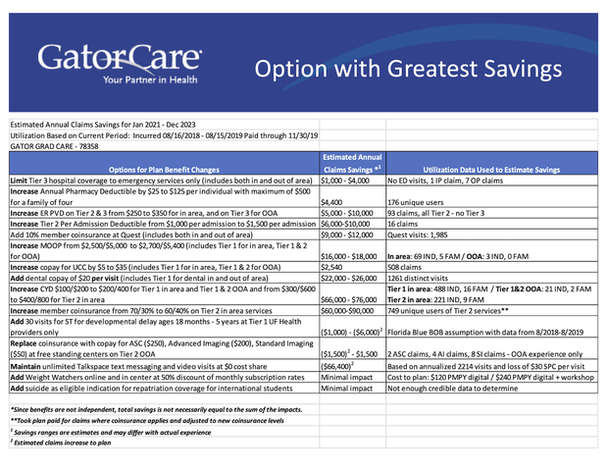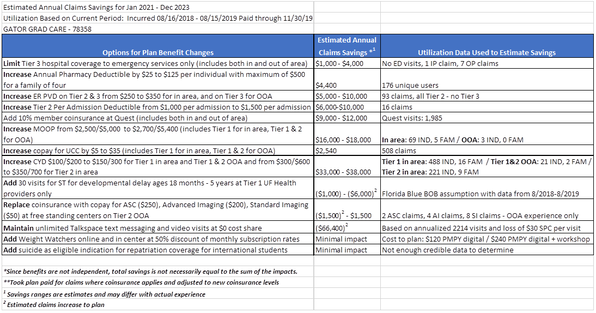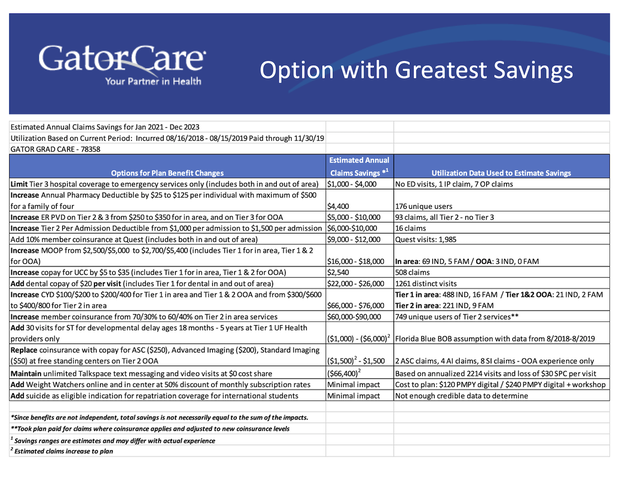|
We were advised during this week's bargaining session that the university may be prohibited from using state funds to provide fee waivers for the health and transportation fees. We are currently waiting for documentation of why state funds cannot be used for waivers and will respond to their informal proposal once we receive it. The university also informally offered to provide GAs this semester a lump sum payment in the form of a check/direct deposit equal to the amount of the health and transportation fees. We anticipate this would be paid as a reimbursement check some time before the end of the year. For Spring 2021 and beyond, this amount would be disbursed across all paychecks, according to the informal proposal.
In the meantime, we recommend not paying your fees immediately. We understand that it may be difficult for some to save for a lump payment in mid-November. The university has advised it will likely extend the deadline for payment to November 20th; we are working to reasonably resolve related fee issues by then and will update you accordingly! You may also be curious whether the amount owed according to your Bursar account statement is accurate. Our team has done some research and made persistent requests for information related fees calculation from the Bursar. What we've learned is that fees should be at least $81.96 per credit hour for in-person courses and independent/supervised/directed research credits. Fees for courses delivered remotely may be more than $81.96 per credit hour if a distance learning fee is assessed. However, we're told the distance learning fee varied from department to department and college to college. If the amount of fees you owe is more than $81.96 per credit hour and you are taking a course delivered through Zoom, then you are advised to contact your department and college to ask for the amount of any distance learning fees assessed on these courses. We understand that fee charges in your Bursar account this semester are confusing. Your union is keeping active communication with the Bursar as well as other representatives to make sense of it all. We are starting to get more answers and will keep you informed of new developments as we move forward. Thank you for your patience and stay tuned for more updates soon. Graduate assistants, GAU continues to bargain with UF over our health insurance plan, GatorGradCare (GGC). During our October 7th bargaining session, GAU representatives fought to ensure graduate employees in need of expensive care or treatments will not suffer an even greater financial burden in the future. In response to our tentative acceptance of some changes to the health care plan, UF released a new proposal. You can compare the administration's current proposal from October 7th with their previous proposition from September 30th below. Of note, the Administration is no longer seeking to increase co-insurance for Tier 2 services from 70/30% to 60/40%. GAU opposed this proposal because it put our most vulnerable GAs at risk. We have also fought increases in the calendar year deductible (CYD). UF proposed increasing the deductible by 100%, from $100 to $200. GAU countered with a 50% increase, from $100 to $150. This deductible does not apply for services with a co-payments, such as doctor visits. UF's new proposal does not currently account for an increase in monthly premiums. The Administration and GatorCare are still determining what increase they would like to propose. GAU believes small premium increases are a vital way to protect our GAs with chronic illnesses and those who experience life-threatening medical issues. You can watch our latest bargaining session below to see how GAU fights to protect the health of graduate employees. Please comment below or send us an email at [email protected] if you have questions or concerns about health insurance. Additionally, our Health Care Chair, Rachel Hartnett, can be reached at [email protected].
With Love, GAU Health Care Committee Fellow graduate assistants, GAU is currently bargaining with the administration concerning our health insurance plan, GatorGradCare (GGC). The big issue that we and the administration are contending with is that over the past three years GGC has been operating at a total deficit of $383,369. This, in conjunction with overall rising healthcare costs, means that the UF administration needs to make a deal that saves them money for this program. They made their proposal this past Wednesday, September 30th. Here are the proposed changes: This plan makes no increases to GAs monthly premiums, but this is offset with increased costs elsewhere. Most concerning to GAU are the increase in calendar year deductible (CYD) from $100 to $200, the increase in Tier 2 hospital per admission deductibles (PAD) to $1500, the increase in Tier 2 services co-insurance from 70/30% to 60/40%, and a $20 per visit copay for dental services. GAU opposes this proposal because it puts our most vulnerable GAs at risk. As a group insurance plan, large individual costs for those with chronic illnesses are offset by the premiums of healthier individuals. The UF administration’s offer keeps monthly premiums the same but increases individual costs should emergencies or chronic illnesses arise. This is something we are all hyper aware of during this global pandemic. Therefore, GAU is countering with a plan that removes or reduces the four proposed changes discussed above. We are aware that this will inevitably result in an increase in monthly premiums for GAs across the board. However, we feel that it is important to protect our GAs with chronic illnesses and those who experience life-threatening medical issues, especially since based on our calculations the increased premium amount will be less than 50%. I understand that health care can be needlessly complex and confusing, which is why GAU held a Health Care Town Hall on September 16th to go over some basic concepts and discuss the options that were previously on the table. Please comment below or send us an email at [email protected] if you have questions or concerns about health insurance. Additionally, our Health Care Chair, Rachel Hartnett, can be reached at [email protected].
With Love, GAU Health Care Committee |
BARGAININGCollective bargaining is the process by which labor unions negotiate with employers to reach a contract on terms of employment, including salary, health care, benefits, and workplace safety. Each year, GAU bargains with UF over such terms. Archives
June 2024
Categories
All
|
|
Connect with GAU
[email protected] Mailing Address PO Box 112014 Gainesville, Florida 32611 Physical Address Yon Hall 224 1908 Stadium Road Gainesville, Florida 32611 Office Hours View Schedule |
Follow GAU
|
Copyright © 2002-21 Graduate Assistants United at the University of Florida. All rights reserved. Affiliated with United Faculty of Florida, Florida Education Association, National Education Association, American Federation of Teachers, and AFL-CIO.




 RSS Feed
RSS Feed
